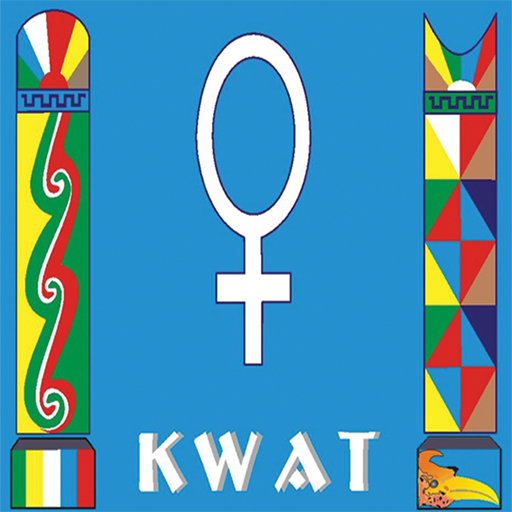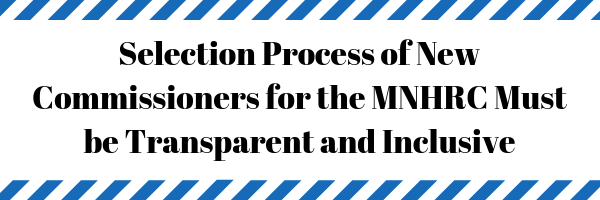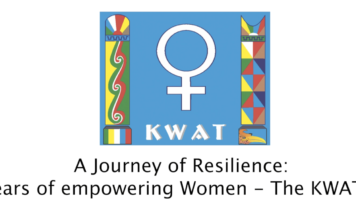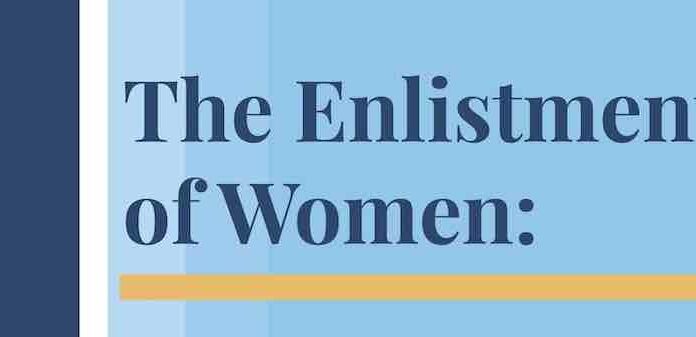25 July 2019
We, the 24 organizations of the CSO Working Group on MNHRC Reform, call on the Selection Board to engage in a public, transparent and inclusive selection process to determine the next commissioners of the Myanmar National Human Rights Commission’s (MNHRC) when the current commissioners’ terms end in September 2019. Given Myanmar’s myriad of complex human rights issues and political realities, it is vital that the commission is reinvigorated with members who have the expertise, experience, and mindset to tackle pressing human rights protection issues and stand on the side of human rights defenders and rights activists. The current composition of the MNHRC has proved unable to adequately protect the rights of those most marginalized, especially in conflict-affected ethnic areas, as seen in the cases of Ko Par Gyi, Brang Shawng, and the recent investigation into the Kyauktan Massacre in Rakhine State which sided with the Myanmar military’s version of events of the murder of eight detainees, despite witnesses and survivors stating otherwise.[1]
In 2014, seven of the current ten commissioners were selected upon the promulgation of the Myanmar National Human Rights Commission Law. According to the MNHRC Law, 30 potential commissioners are nominated by the Selection Board to the President who, in coordination with the Speaker of the Upper House and the Lower House, selects between seven and 15 members, and assigns the roles of both Chairperson and Vice-Chairperson. The term of a commissioner lasts five years and a commissioner can serve a maximum of two terms, meaning the current commissioners are eligible to serve a second term.
However, trust between civil society and the MNHRC is low, with the current members backgrounds that include serving the former military dictatorship, a major reason. We believe that it is time to invigorate the commission with fresh motivation and energy with members who have deep understanding and commitment to human rights in Myanmar.
In order to build this confidence of the MNHRC as an ally of the people, the selection of new members must also go hand-in-hand with reforms to the MNHRC Law so as to improve the selection process. The current composition of the Selection Board consists of a) Chief Justice of the Union, b) Union Minister, Ministry of Home Affairs, c) Union Minister, Ministry of Social Welfare, Relief and Resettlement, d) Attorney‐General of the Union, e) a representative from the Bar Council, f) two representatives from the Pyidaungsu Hluttaw, g) a representative from the Myanmar Women’s Affairs Federation and h) two representatives from registered Non‐Governmental Organizations. We believe that the composition of the Selection Board does offer guarantees of independence from either the Government or the military, and does not include adequate civil society representation. The presence of acting military personnel in the form of the Minister of Home Affairs on the Selection Board is particularly problematic as the military are the main perpetrators of human rights violations. Another major issue is the stipulation that representatives must come from registered NGOs, which is a problem in Myanmar where many rights-based civil society organizations are not registered due to restrictive legislation for independent rights-based organizations, and thus limits the participation of diverse civil society.
While acknowledging the flaws in the Selection Board’s composition, a transparent selection process in which the public can engage and critique the criteria for selection and screen potential candidate is still possible. International standards on selection processes of national human rights institutions require “a clear, transparent, merit-based and participatory selection and appointment process.”[2] In order to do this, vacancies must be widely publicized, candidates must come from a wide range of sectors of society, the application, screening, selection and appointment process must include consultation and participation of the public and civil society, the applicants must be assessed “on the basis of pre-determined, objective and publicly available criteria,” and applicants must be chosen based on their individual capacity as oppose to the organization or institution they represent. We believe that the above components are possible in the selection process of new MNHRC commissioners and strongly urge the Selection Board to use this opportunity to reinvigorate the commission, and start to build trust with the public that the MNHRC can fulfil its mandate with qualified and progressive members committed to the protection of human rights.
Member organizations of CSO Working Group on MNHRC Reform
- Action Committee for Democracy Development – ACDD
- Assistance Association for Political Prisoners – AAPP
- Association of Human Rights Defenders and Promoters – HRDP
- Athan – Freedom of Expression Activist Organization
- Burma Monitor (Research and Monitoring) – BM
- Equality Myanmar – EQMM
- Future Light Center – FLC
- Genuine People’s Servants – GPS
- Generation Wave – GW
- Human Rights Education Network – HREN
- Human Rights Foundation of Monland – HURFOM
- Kachin Women’s Association Thailand – KWAT
- Karen Human Rights Group – KHRG
- Karenni Human Rights Group – KnHRG
- Loka Ahlinn (Social Development Network)
- Metta Campaign – Mandalay
- Myanmar People’s Alliance (Shan State)
- Pa-O Youth Organization – PYO
- Progressive Voice – PV
- Smile Education and Development Foundation – Smile
- Synergy (Social Harmony Organization)
- Ta’ang Women’s Organization – TWO
- The Seagull
- Yangon Watch
For media inquries:
- Aung Myo Min, Equality Myanmar, myominburma@gmail.com, 09-448015306
- Aung Khaing Min, Progressive Voice, akm@progressive-voice.org, 09-261009995
- Aung Zaw Oo, Association of Human Rights Defenders and Promoters, 2012hrdpnetworks@gmail.com, 09-421039493
Editor’s Note:
The CSO Working Group on
MNHRC Reform was formed in 2019 and advocates for reform of the MNHRC so it is
an effective, independent, and transparent national human rights institution
that promotes and protects the rights of all people of Myanmar in line with the
Paris Principles.
[1] See ‘Burma: All Shook Up.’ Burma/Myanmar Chapter of the 2018 ANNI Report. Burma Partnership, Equality Myanmar, and Smile Education and Development Foundation. 18 September 2015. http://www.burmapartnership.org/wp-content/uploads/2015/09/1-Burma-FINAL-04-August-2015.pdf and Wai Mar Tun, Ye Tike, and Tin Aung Khine. ‘Myanmar Human Rights Commission backs Army’s Story of Kyauktan Massacre.’ Radio Free Asia. 13 June 2019. https://www.rfa.org/english/news/myanmar/story-06132019170639.html
[2] See the ‘General Observations of the Sub-Committee on Accreditation.’ Global Alliance of National Human Rights Institutions. 2018. https://nhri.ohchr.org/EN/AboutUs/GANHRIAccreditation/General%20Observations%201/Forms/Default%20View.aspx





